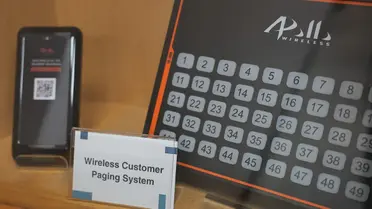
Hezbollah gave out pagers hours before blasts, even after checks were made
Two security sources say that Hezbollah in Lebanon was still giving its members new Gold Apollo pagers hours before thousands of them blew up this week. This shows that the group was sure its members were safe, even though it was still checking its electronic gear for threats.
One person said that a member of the militia backed by Iran got a new pager on Monday. The next day, while it was still in its box, it blew up.
The second source said that a junior was hurt when a pager given to a senior member a few days before went off.
The Gold Apollo-branded devices went off across Hezbollah areas in south Lebanon, Beirut’s suburbs, and the eastern Bekaa valley on Tuesday in what seemed to be a coordinated attack.
A lot of Hezbollah walkie-talkies went off on Wednesday. More than 3,000 people were hurt in the attacks that happened one after the other. At least two children were killed.
Israel is blamed for the strikes by both Lebanon and Hezbollah. According to a security source in the West, Unit 8200 of Israel’s military intelligence was involved in planning the attack this week. Israel has since increased its bombings on Lebanon, but it hasn’t said for sure or denied that it was involved.
Another Lebanese person who knows about the devices’ parts told Reuters on Friday that the walkie-talkies’ batteries had a highly explosive chemical called PETN added to them. A story from Reuters earlier this week said that Hezbollah had not found the up to three grams of explosives hidden in the pagers for months.
One of the security sources said that the bombs were hard to find “with any device or scanner.” The person didn’t say what kind of scanners Hezbollah used to look through the pagers.
Two more sources told Reuters that Hezbollah tested the pagers after they were sent to Lebanon, starting in 2022. They did this by taking them through airports to make sure they wouldn’t set off any alarms. For this story, Reuters talked to six people who knew a lot about the devices that went off.
The people who spoke to us did not say what airports they did the tests at.
The checks weren’t because they had a specific suspicion about the pagers. Instead, one of the security sources said that they were part of a regular “sweep” of all of its equipment, including communications devices, to see if there were any signs that they were hidden explosives or spying tools.
The attacks and the fact that the devices were sent out even though they were regularly scanned and checked for holes have hurt Hezbollah’s image as the strongest of Iran’s allied “Axis of Resistance” anti-Israeli irregular forces in the Middle East.
Hassan Nasrallah, the secretary-general of Hezbollah, said in a TV speech on Thursday that the strikes were “unprecedented in the history” of the group.
The media office for Hezbollah and Israel’s armed forces did not reply right away to requests for comment on this story.
Gold Apollo in Taiwan has said that it did not make the devices used in the attack. Instead, it says that they were made by a company in Europe that was authorized to use the company’s name. Reuters hasn’t been able to figure out where they were made or when they were changed.
Early this year, a group of 5,000 of the pagers were brought into Lebanon. Reuters said earlier that Hezbollah switched to pagers to try to avoid Israeli surveillance of its cell phones after top commanders were killed in targeted airstrikes over the past year.
The fight between Hezbollah and Israel goes back many years, but it has gotten worse in the last year at the same time as the Gaza war, making people more worried about a full-blown regional war.
NOT ENOUGH, OR LATE
Two security sources and an intelligence source told Reuters that after the pagers went off on Tuesday, Hezbollah thought more of its devices might have been hacked.
In answer, it widened the scope of its communications systems and carefully checked all of the devices. Two security sources said that the agency also started looking into the supply lines that the pagers came through.
But the review wasn’t done by Wednesday afternoon, when the hand-held radios went off.
One of the sources told Reuters that Hezbollah thinks Israel blew up the group’s hand-held radios because it thought Hezbollah would soon find out that the walkie-talkies were also rigged with explosives.
Lebanon’s health minister says that 25 people died and at least 650 were hurt in the walkie-talkie explosions. This is a much higher death rate than the pager blasts the day before, which killed 12 and hurt nearly 3,000.
One of the security sources and the intelligence source said that was because they brought more explosives than the beepers.
Three of the people said that the group is still looking into where, when, and how the explosives were put into the devices. Nasrallah said the same thing in his speech on Thursday.
One of the security sources said that Hezbollah had stopped Israeli attacks in the past that were aimed at devices that the group had brought in from other countries, such as its private landline phones and ventilation units in its buildings.
That includes possible breaches from the last year.
“There are several electronic issues that we were able to discover – but not the pagers,” a source said. “They tricked us, hats off to the enemy.”
All Categories
Recent Posts
Tags
+13162306000
zoneyetu@yahoo.com



